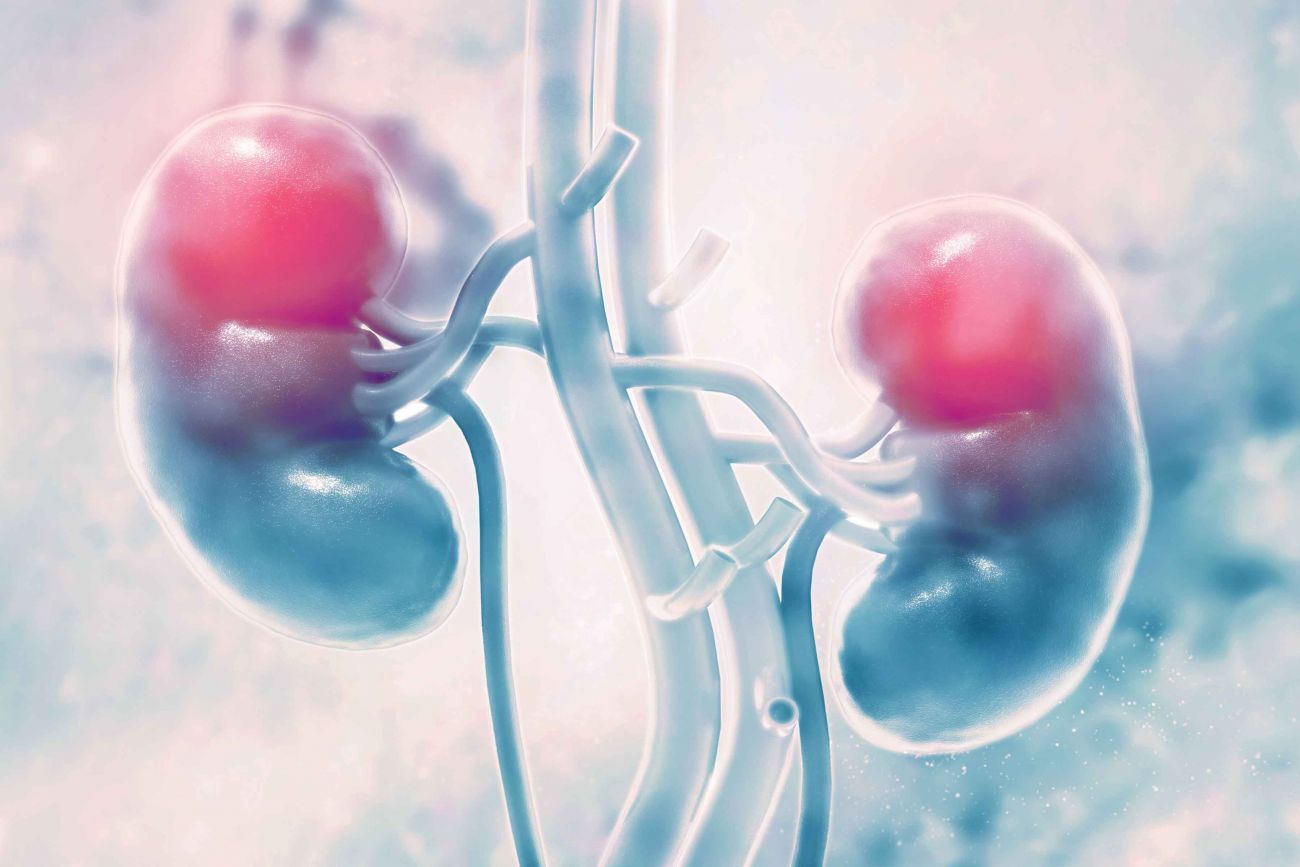Though considered a rare disease, multiple myeloma is the second-most common type of blood cancer and is diagnosed in about 32,000 people a year in the U.S. While its origins are still unknown, the disease affects plasma cells, a specific type of white blood cell.
Many patients battling multiple myeloma also suffer concerning complications, several of which can contribute to impaired kidney function. Up to 85% of myeloma patients experience this malfunction, which often is caused by the disease itself.
“The myeloma cells produce incomplete antibodies, also called light chains,” says Jens Hillengass, MD, PhD, Chief of Myeloma at Roswell Park Comprehensive Cancer Center. “These abnormal proteins, excreted through the kidneys, can cause damage to the kidney tissue with blockage, inflammation and fibrosis. In rare cases, the proteins are deposited as so-called amyloid fibrils, which are harmful protein fragments, leading to a condition known as amyloidosis.”
Joined together, the abnormal and normal proteins become too large to pass through the kidney’s filters, called glomeruli, which are clusters of capillaries around the end of kidney tubules. They obstruct the passages, preventing fluid from passing through the kidneys. This causes inflammation in the kidney tissue, leading to kidney damage, according to Dr. Hillengass.
The resulting damage leads to a condition called cast nephropathy, or “myeloma kidney,” which occurs in 20% of multiple myeloma patients.
“In some patients, the kidney stops functioning correctly, which can lead to the need for hemodialysis,” he says. “If the disease is rapidly progressing or discovered too late, patients can develop complete kidney failure.”
Preventing “Myeloma Kidney”
Other preexisting or underlying conditions can increase the risk of impaired kidney function in patients who contract multiple myeloma, including diabetes, artery disease, infections, smoking and dehydration.
And in a kind of clinical Catch-22 for patients with the disease, the recommended treatments for multiple myeloma — chemotherapy and medications such as lenalidomide and bisphosphonates — also can increase the risk of developing myeloma kidney.
Learn More About Multiple Myeloma
What other effects can multiple myeloma have on your body besides kidney failure?
Learn MoreWhile there is no specific therapy for myeloma kidney itself, Dr. Hillengass says early and effective treatment for multiple myeloma, along with hemodialysis if needed, also is the best therapy for myeloma kidney.
He notes that most multiple myeloma patients have “apparently normal kidney function,” and that routine lab tests during treatment also will alert doctors to any kidney malfunctions or damage.
“The most important thing is to identify that myeloma or amyloidosis are causing the kidney failure and to treat the underlying disease as fast as possible,” says Dr. Hillengass. “Time is kidney!”


